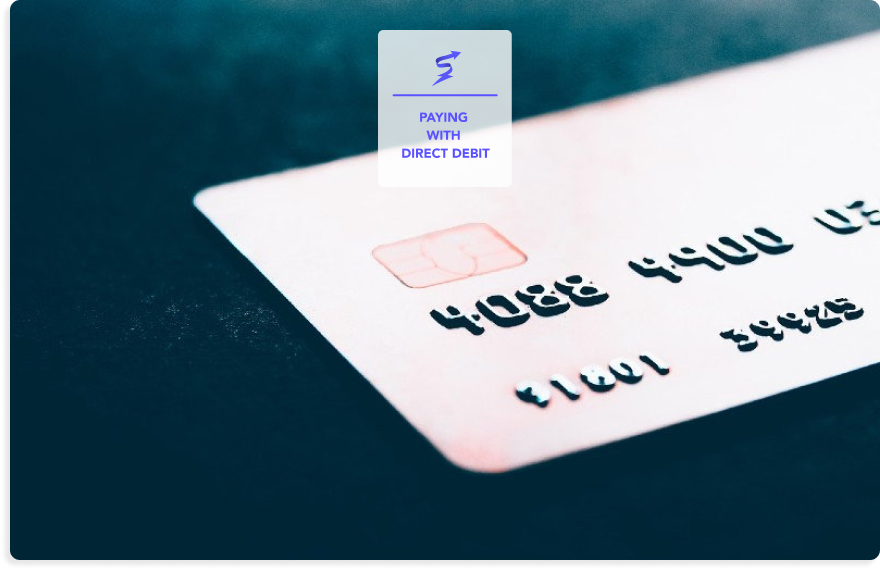Paying With Direct Debit

Discover the best Switch Plan deals for your boiler
Save money by buying our deals. Compare the best boiler deals available and start saving money today!
Notice
Being average when it comes to most things is not taken as something positive. However, when it comes to the average gas bill, the more "average" you are, the better off you will be. In this guide to the UK national average gas bill, we will attempt to drill down a bit further into the factors that affect gas bills, giving you a clearer picture of what your own average should be. And, if you’re paying much more than the average energy bill, what you can do to bring down our bills and save on your energy.
Last update: November 2022

Did you know that on average, we in the UK pay less for our energy than our European cousins? Despite this, however, many of us are paying far more for our energy than we should! According to a study by the National Audit Office we, as a nation are spending over £800 million too much for the gas and electricity we use. Fortunately, there are a number of ways to reduce your energy bill. As well as taking steps to reduce your energy usage, you can save by switching suppliers every 12-18 months.
What is a Direct Debit?
A Direct Debit is an instruction to your bank or building society to allow a company to take payment directly from your bank account for the goods or services that you use. At present, it’s estimated that 80% of Brits have at least one Direct Debit while the average UK consumer has 6. Direct Debits are used to manage all kinds of monthly expenses from rent or mortgage payments to insurance.
Many energy consumers now pay for their energy by Direct Debit. Not only does this work out cheaper than paying a monthly bill through the post, it also ensures that energy consumers get access to the best rates and tariffs.
Direct Debit: How does it work?
Setting up a Direct Debit with your energy supplier is simple. You provide the supplier with your account number and sort code and instruct them when you would like payment to be taken out of your account.
However, before you can do this, your supplier needs to know how much to extract from your account every month to cover your usage. This is why it’s so important to have a clear idea of your monthly / annual use when choosing a new energy supplier. Based on this, they can suggest an affordable amount to extract every month that will cover your usage (assuming that it is roughly the same year on year). Some suppliers will adjust direct debits so that they are slightly higher in the winter, but lower in summer. This ensures that your direct debit is in proportion with your energy usage.
What if my Direct Debit doesn’t cover my usage?
There will likely be times when you use a little more or less gas and electricity with each passing month. If you use more energy than is covered by your direct debit your account will be in debit. When this happens, your supplier may recommend increasing your monthly direct debits to better cover your usage. Alternatively, you may make a one-off payment to cover the excess and keep your Direct Debit as it is.
If, on the other hand, your Direct Debit exceeds your usage, your account is in credit. This credit will remain on your account and be used if your usage should exceed the amount of your Direct Debit in future. If you amass a significant amount of credit, you can choose to reduce your direct debit and / or have your credit transferred back into your bank account.
What are the advantages of paying by Direct Debit?
Energy suppliers will invariably give their best tariffs to customers who pay by Direct Debit, because it’s in their best interests to be paid in this way. Energy suppliers operate on razor-thin profit margins. As such, if there’s one thing they can do without, it’s unpleasant surprises. Direct Debits assure suppliers that they’ll make a set amount from each customer every month, without having to wait for a bill to be received in the post and paid. They are also much better for suppliers’ cash flow, as well as saving them the expense of managing and sending paper bills.
Direct Debits aren’t just better for suppliers, they’re better for consumers too:
- Energy suppliers will offer cheaper rates to customers who pay by Direct Debit.
- Customers who pay by Direct Debit can access a broader range of "paperless" tariffs.
- Your energy bills are easier to manage. No more trips to the post office or topping up prepay meters.
![]()
How to set up a Direct Debit
Direct Debits are quick and easy to set up. You can usually set them up over the phone or via your supplier’s online customer portal or app if they have one. All you need to do is supply the supplier with your account number and sort code. Instruct them how much you wish to be debited from your account, and what day of the month you prefer your payment to be taken.
Your supplier will usually ask you for your monthly or annual energy usage so that they can ensure a realistic figure for your Direct Debit. If you cannot supply this, they will base your usage on UK averages for the size of your property and how many occupants live in your home.
How will my supplier calculate my first Direct Debit
Your supplier will base your first Direct Debit payment on the information that you have provided for them about your usage. This is why it’s a good idea to provide your current monthly usage either in monetary terms or in kilowatt hours. Otherwise, they will base your first Direct Debit on average or historical usage for a property of your home’s size.

Looking for the best energy deals?
Free Service
Request a callback from our experts at Switch Plan to help you find
the best energy contract .
More info
Your supplier will usually request a meter reading from you every 3 months. They can use this to adjust your Direct Debit to better reflect your energy usage.
How to cancel a Direct Debit
You can cancel your Direct Debit at any time by instructing your bank to cancel the payment. However, this needs to be done at least 10 days before payment is due. You also need to notify your supplier that you intend to cancel the Direct Debit, otherwise you may incur penalties.
Can my energy company increase my Direct Debit?
Yes, if your energy usage consistently fails to be covered by your Direct Debit, your supplier can increase your Direct Debit to ensure that it matches your usage. They must, however, give you prior notification before they do this for you.
We can help you find the best Direct Debit tariffs
Paying by Direct Debit can save you money on your monthly energy bills. But there’s still enormous variance between different energy tariffs and suppliers. We can scour the market on your behalf to find the perfect Direct Debit tariff for your needs and usage. What’s more, we can even manage your switch from end-to-end, so that you can get cheaper energy 100% hassle-free!
Want to know more?
Call us today on 0330 818 6223. We’re available from 8.30 am to 5.30 pm.
Read more about energy payment methods:
Looking for a better energy deal?Leave your phone number to request a call back from us!
Free Service
FAQ
How do energy Direct Debits work?
All you need to do is provide your bank account number and sort code to your energy supplier to set up your Direct Debit. It’s a good idea to get figures for your annual or monthly energy use before you set up a new Direct Debit. These can be used to calculate a monthly payment that accurately reflects your usage.
Is it cheaper to pay by Direct Debit?
Yes. It’s inevitably cheaper to pay by Direct Debits because paying in this way costs less for energy suppliers to administrate, as well as helping them maintain a healthy cash flow. Which is especially important in the low-margin energy industry.
What if my Direct Debit covers more / less than my use?
If your usage either exceeds or falls short of your monthly payment amount, it can be adjusted at a later date. Alternatively, you can make an additional one-off payment if there’s a specific reason why your energy has been higher than usual in one month. If your account consistently accrues credit, your supplier can pay this back into your bank account.
What happens to my Direct Debit if I don’t have enough to pay?
If you do not have enough in your bank account to cover your Direct Debit (and your bank account does not have an overdraft facility), you may be issued with a penalty charge. This is why it’s so important to contact your energy supplier as soon as possible if you are worried about being able to pay your bill. They may be able to take payment from an alternative bank account, reduce your Direct Debit temporarily or even defer your payment. But they can only help you when they know there is a problem.
Updated on 29 Jan, 2024
Alexander Striano
Consumer Energy Expert
Alex joined the papernest team as a SEO Project Manager Assistant for Broadband Plans. He has developed a real expertise on connectivity topics and works on delivering the best possible content to help you navigate your broadband in and outside your home.
Alex joined the papernest team as a SEO Project Manager Assistant for Broadband Plans. He has developed a real expertise on connectivity topics and works on delivering the best possible content to help you navigate your broadband in and outside your home.
Comments